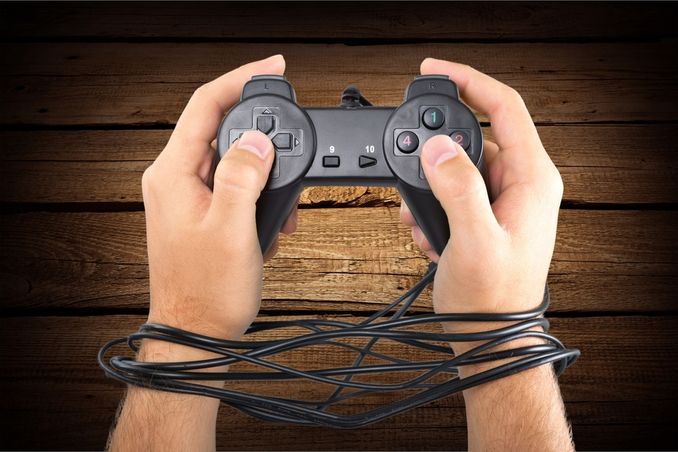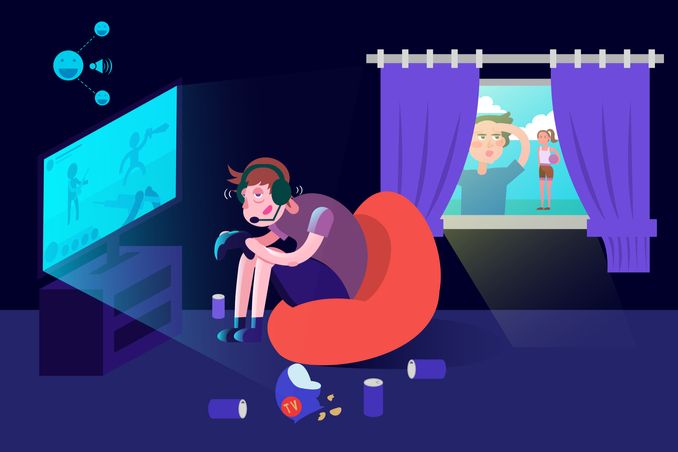Online gaming addiction is an uninhibited, compulsive use of video games that creates issues in other parts of a person’s life. Typically known as internet addiction, online gaming addictions have been a growing concern. Online gambling has become more routine, usually aimed at young people. With the growing saturation of gaming in our lives, this article aims to help identify the answer to the question, “Do you have an online gaming addiction?”
Addiction to gaming includes computer games, video games, console games, and even games played on a tablet, advanced calculator, or cell phone. Games can be part of any social media page like Facebook.
In mere decades, a vast increase in online gaming has made it a multi-billion-dollar industry. However, there is concern about the long-term effects of online gaming, especially in children.
Becoming an addict is the exception among players instead of the rule. For most people, online gaming is an exciting, fun activity. Recent studies show that an online gaming disorder is a true phenomenon that could jeopardize an addict’s physical and mental health.
Can Too Much Gaming Become Dangerous?
It is fantastic to do things you enjoy. But could you go too far with a hobby? At what point does it develop into an addiction? That is the question professionals are attempting to answer about playing online games.
Though gaming has been around for close to 50 years, research about its ills is still in the primary stages. Various groups have come to diverse conclusions about if problem playing is an addiction.
Medical professionals believe that video games could be a positive experience for numerous individuals. On the other hand, they feel that over time, like an addictive substance, people might find online gaming harming their personal and professional lives, creating a yearning for more, producing withdrawal symptoms in its absence.
Gaming could become a condition, but excessive use is not necessarily an issue. Excessive is not harmful. The number of individuals addicted to video games, similar to people addicted to drugs, is relatively low. It isn’t about the amount of time someone spends online gaming. It’s about the context in which screen times play a part in her or his life.
Though the American Medical Association doesn’t recognize it as a disorder, online game addiction is a severe problem for numerous people. According to a University of New Mexico study, 6 to 15 percent of all gamers show signs of addiction. Although this condition could have substantial results for those experiencing it, its symptoms and signs could at times be tough to recognize.
Like all good things, online gaming is best in moderation. Children and adults alike could create obsessive, harmful relationships with games that they love.
Why Is Online Gaming Becoming Controversial?
Because there is at least one gamer in over 70% of U.S. households, you possibly know at least one individual who plays online games frequently. Few people would disagree that someone could play online gaming too often. It’s easy to say that a person is an addict when they need to take a rest.
Presently, there is no scientific agreement on when excessive online gaming becomes an addiction or if this is possible. For this reason, the classification for internet gaming disorder by the APA (American Psychiatric Association) is an untested diagnosis that necessitates further review.
A recent study left open the likelihood that the classification can one day change. The study said that there isn’t enough research to substantiate that overdoing online games is an addiction based on the APA’s definition. The APA states addiction as a brain disease that manifests by habitual use despite damaging consequences. This definition effectively dismisses the likelihood of any behavioral addictions.
Another cause for the scientists’ skepticism is that just a tiny number of gamers ever display any disorder symptoms, particularly the tolerance and withdrawal symptoms experienced by those with severe online gaming addiction. For this reason, some researchers and scientists feel that overplaying online games is just a habit or a sign of another disorder rather than an addiction.
Why Online Games Can Be Addictive

Even without a formally diagnosed disorder, some individuals forgo their marriages and jobs to spend over 50 hours every week playing online games. Some young people get so attached to online gaming that they threaten anyone when told to drop the controller.
Many of us have had experiences or read about cases that show that online games possess addictive power. While circumstantial evidence is not scientific research, real-world experience and the increased awareness of other behavioral addictions clarify why the idea of online game addiction is becoming increasingly acceptable. The WHO (World Health Organization) recently added “gaming disorder” to its authorized disease list.
It is vital to know that the amount of time an individual spends playing an online game does not imply that they have an addiction. After all, a person could spend several hours playing an online game just because they enjoy it, but they can also stop without much effort.
By contrast, an individual may have an addiction to gaming if they cannot stop playing them, even though they understand they should. They are aware that online gaming is making them disregard their friends, job, and family. Though, they keep playing because they feel good in front of the screen.
Sometimes a person “needs” to play online games to be happy and feels awful they’re not playing. This action implies that they may have a disorder that is just as real as a drug or alcohol addiction. Withdrawal symptoms generally characterize substance use disorders. While conducting studies on online gaming, researchers have documentation on possible internet game withdrawal symptoms such as insomnia, fatigue, headaches, aggressive emotions, and severe cravings to play online games again.
Additionally, internet gaming impacts the brain in the same way as addictive drugs. They activate the release of dopamine, a chemical that boosts behavior. For this reason, playing online games could be an addictive stimulus. These specifics suggest that addiction to gaming might be a reality.
Symptoms of Online Gaming Disorder
If you feel that someone important to you suffers from an addictive online gaming disorder, watch for a few significant signs. If you are trying to tell if someone has a real online game issue, consider these questions:
- Are they becoming cut off from friends and family?
- Are they lying to others about how frequently they play online games?
- Do they usually play in secret?
- Do they get mad and upset when they’re not online gaming?
- Are they forgoing their job to participate in internet gaming?
- Are they not enjoying their usual activities?
- Are they not eating to focus on internet gaming?
- Are they frequently tired since they’re not getting a good amount of sleep?
- Do they have physical issues from gaming too much, including eye strain, carpal tunnel syndrome, and migraines?

Reasons for Online Gaming Dependency
Research shows that most individuals battling the warning signs of an internet game addiction participate in multiplayer games on the web. Massively multiplayer online role-playing games (MMORPGs) are very addictive. They provide a fantasy world with an endless adventure where players can essentially live different lives as a new individual. They offer a chance to escape reality, leaving behind problems in the real world.
Moreover, MMPORGs have huge groups of players where numerous individuals feel appreciated, welcome, and valuable (something they might not regularly feel in the real world). An MMPORG player could join clans, aid other players, and make new friends. Though the setting is fake, the relationships are genuine.
For the player, the idea of being part of something and possessing a role to play could be meaningful and significant, mainly if the player does not get social gratification in the real world. For many individuals with online game addiction, playing the game isn’t just for fun. It is their social life, responsible for their self-esteem. Online gaming addictions directly coincide with social media addictions, another behavioral disorder that flourishes on the feeling of acceptance.
The desire for social acceptance and escapism might not be the only reason for an internet game addiction. Various studies have sought to corroborate the relationship between video game addiction and other mental health issues. One 2016 study implies that depressed people deal with problems in an avoidant way and are more likely to become online gaming addicts. Another study from 2017 discovered a strong relationship between internet game addiction and anxiety disorders. However, it isn’t clear whether the addiction creates anxiety or if the stress adds to the habit.
How I Can Get Help for a Problem with Gaming?
If you realize it’s time to beat your online game addiction or assist a person grappling with it, several resources can help you get started. There are programs all around the U.S. and in-person support groups committed to assisting individuals in getting free from addiction to online games.
The first step to stopping online gaming addiction is to stop playing the game. This action could be challenging, which is why numerous internet game addicts made a victorious recovery only when they throw out their gaming equipment or went away on a wilderness retreat.
A severe issue with internet games may necessitate drastic solutions. If you have questions about online gaming treatment, please call a devoted treatment provider today. Online games should not be the central part of anyone’s life. Though if it is, there is a chance of getting liberated from the screen with help.

